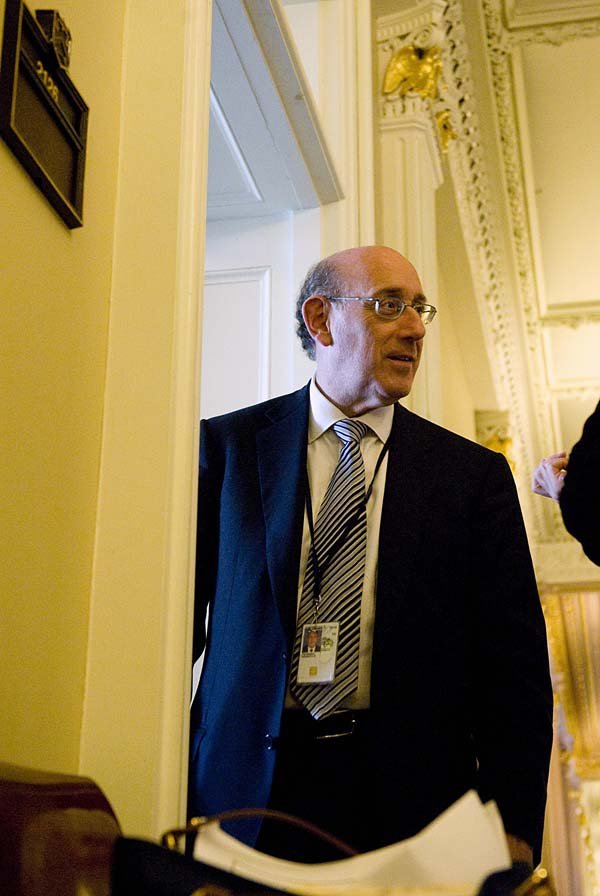WASHINGTON — The Obama administration’s pay czar said Friday that he did not try to recoup $1.6 billion in lavish compensation to top executives at bailed-out banks because he thought shaming the banks was punishment enough.
Kenneth Feinberg said 17 banks receiving taxpayer money from the $700 billion financial bailout made “illadvised” payments to their executives. But he stopped short of calling them “contrary to the public interest” - language that would have signaled a fight to get the money back.
Feinberg can’t force the banks to repay the money. But the law instructed him to negotiate with banks to return money if he determined that allowing them to keep it was not in the public interest.
He said such a fight could have exposed banks to lawsuits from shareholders trying to recapture the executives’ money. Feinberg said his public shaming of the 17 banks was sufficient.
“I’m not suggesting we should blink or turn the other cheek,” Feinberg said in an interview with The Associated Press. “These 17 companies were singled out for obviously bad behavior. The question is, at what point are you piling on and going beyond what is warranted?”
By avoiding using the strongest language in his report, he could criticize the banks without endangering the weak economic recovery, Feinberg said.
“Certain aspects of the financial system still confront fragility,” he said in an interview. “I’m not looking to compound that fragility beyond what I thought was necessary.”
Among the companies he let go are two whose bailouts will cost taxpayers billions: American International Group Inc. and CIT Group Inc.
Rather than demandingthey return the money, Feinberg invited the 17 banks to give their boards of directors more power to withhold pay during future crises. The request was voluntary.
Feinberg reviewed 419 companies that received bailout money before pay curbs were enacted by Congress in February 2009.
The review covered the period from October 2008 toFebruary 2009. The starting point was when banks began receiving bailout money from the Troubled Asset Relief Program. The ending point was when Congress enacted pay curbs on institutions receiving government support.
He determined that a total of $1.7 billion in payments were made during that period that would have violated the guidelines adopted later. And $1.6 billion of that amount was paid out by 17 of the country’s largest financial institutions.
Business, Pages 25 on 07/24/2010

